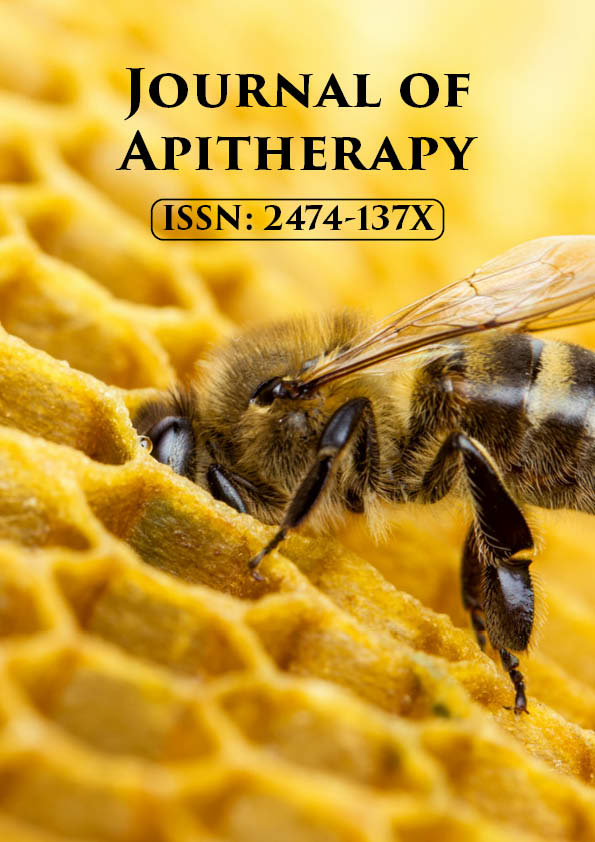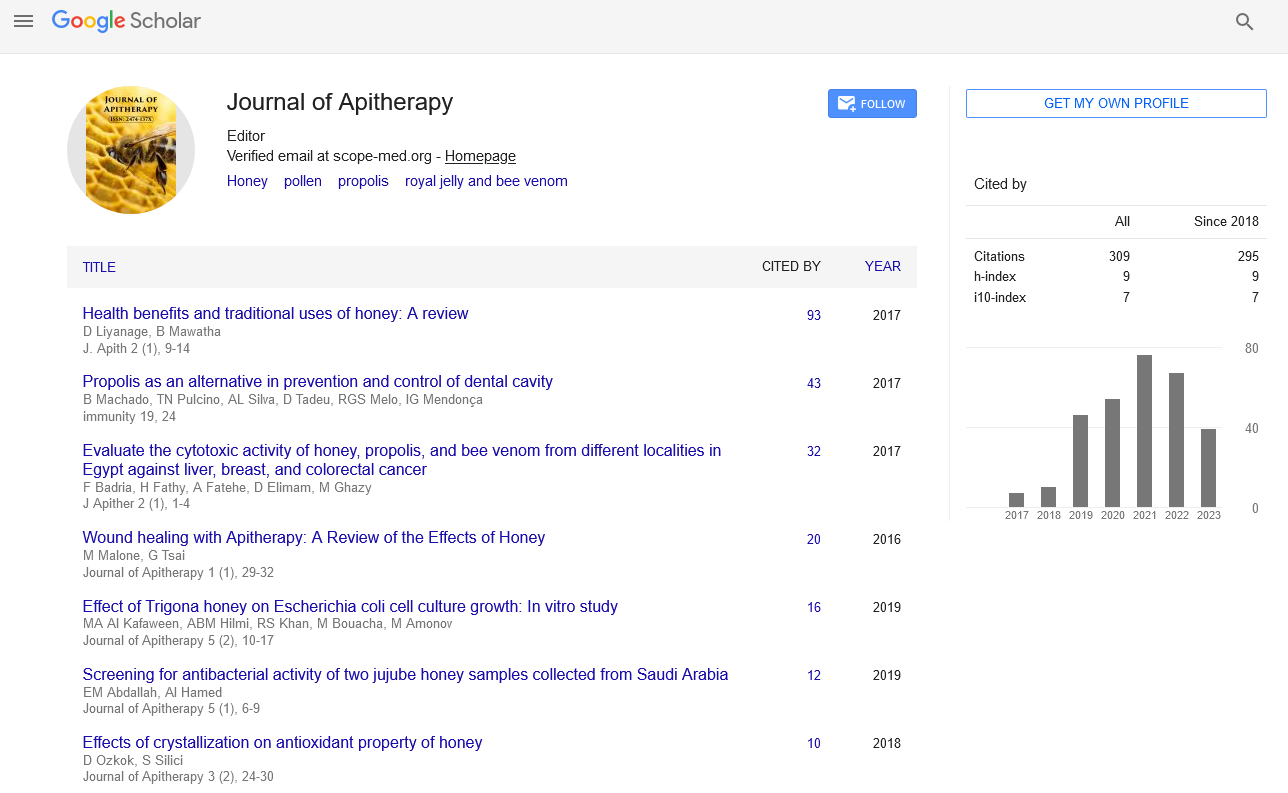Perspective Article - Journal of Apitherapy (2024)
The Antimicrobial and Anti-Inflammatory Secrets of Honey Varied Therapeutics
Kellan Blaze*Kellan Blaze, Department of Forensic Medicine and Toxicology, Zagazig University, Egypt, Email: Blaze@gmail.com
Received: 04-Dec-2023, Manuscript No. JAPITHERAPY-24-126207; Editor assigned: 08-Dec-2023, Pre QC No. JAPITHERAPY-24-126207 (PQ); Reviewed: 22-Dec-2023, QC No. JAPITHERAPY-24-126207; Revised: 29-Dec-2023, Manuscript No. JAPITHERAPY-24-126207 (R); Published: 05-Jan-2024
Description
In the vast of natural remedies, honey has long been revered for its medicinal properties. The concept of “Honey Varietal Therapeutics” delves into the diverse world of honey varietals, each derived from specific floral sources, and their unique therapeutic benefits. This emerging field not only celebrates the exquisite flavour that honey varietals offer but also sheds light on their potential in promoting health and well-being.
The rich tapestry of honey varietals
Honey, a golden elixir produced by bees from the nectar of flowers, varies greatly in flavour, colour, and aroma based on the specific floral sources visited by the bees. These distinct honey varietals include Manuka, Acacia, Clover, Wildflower, and many others, each possessing a unique composition of nutrients, antioxidants, and bioactive compounds. The concept of honey varietal therapeutics recognizes that these variations go beyond mere taste preferences; they hold the key to unlocking specific health benefits.
Manuka honey: Among the various honey varietals, Manuka honey stands out as a pioneer in therapeutic applications. Originating from the nectar of the Manuka tree (Leptospermum scoparium) native to New Zealand and parts of Australia, Manuka honey has gained global recognition for its potent antibacterial properties. The presence of methylglyoxal (MGO) and hydrogen peroxide in Manuka honey contributes to its remarkable antimicrobial activity, making it an effective remedy for wound healing, skin infections, and sore throats.
Acacia honey: On the other end of the spectrum, Acacia honey, derived from the blossoms of the Acacia tree, is known for its light colour and mild flavour. Acacia honey has a high fructose content, making it a preferred sweetener for those with diabetes. Additionally, this varietal boasts anti-inflammatory properties, making it a potential ally in alleviating respiratory issues and soothing the digestive system.
Wildflower honey: As the name suggests, Wildflower honey is a blend of nectar from various wildflowers. This diversity in floral sources contributes to the unique flavour profile of Wildflower honey. With a combination of vitamins, enzymes, and antioxidants, this varietal offers potential benefits for immune support and allergy relief. The synergy of different floral contributions creates a holistic honey that embodies the essence of biodiversity.
Exploring therapeutic properties
The therapeutic potential of honey varietals extends far beyond their sweet taste. Research has unveiled a multitude of health-promoting properties that make honey varietals a valuable addition to holistic wellbeing:
Antimicrobial action: Many honey varietals exhibit natural antimicrobial properties, helping to inhibit the growth of bacteria and fungi. This makes honey a potential topical treatment for wounds, burns, and skin infections.
Anti-inflammatory effects: Certain honey varietals, such as Manuka and Acacia, have demonstrated antiinflammatory effects. This property can be beneficial in managing inflammatory conditions, including respiratory issues and gastrointestinal discomfort.
Antioxidant richness: The presence of antioxidants in honey varietals helps combat oxidative stress in the body, potentially reducing the risk of chronic diseases and supporting overall health.
Digestive health: Honey, particularly varieties like Acacia, has been associated with soothing digestive issues. Its mild nature and potential prebiotic effects make it a gentle addition to digestive wellness.
Wound healing: The antimicrobial and antiinflammatory properties of honey varietals, especially Manuka, make them valuable for promoting wound healing. Honey’s ability to create a protective barrier and enhance tissue regeneration has been recognized in traditional medicine practices.
In the world of natural remedies, honey varietal therapeutics is an exciting frontier that combines the richness of nature with the potential for enhanced health and wellness. From the antibacterial prowess of Manuka honey to the digestive soothing qualities of Acacia honey, each varietal contributes a unique profile of benefits. As we continue to unlock the secrets of honey varietals, the journey goes beyond the jar and spoon. It invites us to explore the intricate relationship between bees, flowers, and the human body—a relationship woven with threads of sweetness, complexity, and therapeutic potential.







